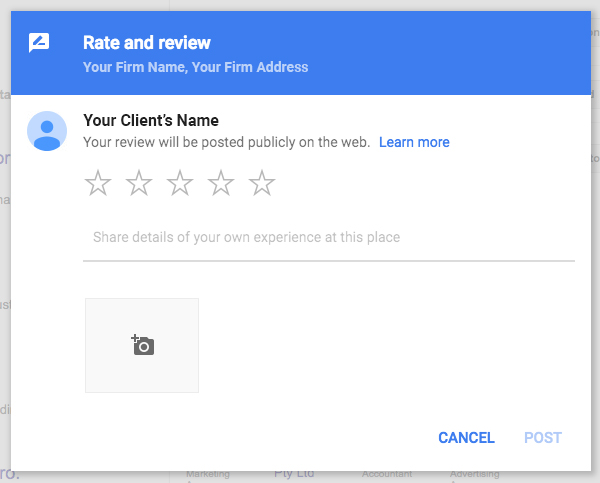Key Takeaways:
- Given the business nature of law firms, negative reviews are more common than we would prefer. Many of those negative reviews will come from people on the opposing side of a matter. Regardless of context, your firm must respond to reviews.
- Online reviews are not going away for law firms. Google is the most important review website for lawyers, since their reviews appear every time someone searches online for your law firm. Those reviews, positive or negative, appear prominently and for many, the average review will be their first impression of your firm.
- You don’t have to back down if something seems fishy. You can dispute reviews, but this is usually ineffective if the review is from a legitimate source. Instead, empathise with the reader and publicly share your side of the story, when appropriate.
Bad reviews happen – it’s how you deal with them that matters
If there was a pile of junk at the entrance of your law firm, you would fix it.
To people searching for your law firm and lawyers, negative reviews on Google look as bad as a pile of junk in front of your reception desk… and your website and search results page likely gets a lot more visitors than your front desk does.
So what should you do?
Ignore it? Definitely not. Get angry? No, you would restrain yourself if that feedback was given in person.
Unfortunately, given the nature of a law firm’s work, you’ll often get negative reviews from people or businesses you are acting against.
In the eyes of Google, it doesn’t really matter. To quote their customer service department on a recent call with them, “how do we know they’re not a client?”
These reviews, both positive and negative, appear in a very prominent position on the Google Search Engine Results Page (SERP). When someone types in your firm name, your Google My Business listing appears on the right hand side of all search results.

The types of people that are likely searching for your firm name are:
- Existing clients and referrers,
- Prospects,
- The media and
- Job seekers.
After reviewing the analytics of countless law firm websites, the majority of users land on a law firm’s website by searching for them, by name, in Google. This specific sequence typically accounts for more than half of a law firm’s website visitors.
Regardless of whether the review is legitimate, fair or completely false – you need to deal with it.
This post will look at the best strategies for handling a negative review for a law firm.
The Importance of Online Reviews for Law Firms
Most law firms rely on referrals from existing clients or other professionals to bring in new work. As a result, word-of-mouth marketing or relationship marketing is typically the foundation of a firm’s marketing and business development strategy.
What others say about you is far more important (and believable) than what you say about yourself.
What’s more powerful and authentic? You telling someone about your (firm) every single day, or one of your fans telling someone about your firm every single day? – Brains on Fire
The same goes for your detractors.
Instead of an in-person conversation that’s over as soon as you leave a room, online reviews are perpetual, online evidence of a word-of-mouth conversation.
It’s why consumers use social media to rant about businesses. If they call a customer service line, the conversation is 1 to 1. If they publicly call out a business online, the conversation is 1 to many. The disgruntled customer feels like they’re more likely to be heard, which is a bad thing for the business.
How to handle a negative review
Step 1 – Check if the Review abides by the Google’s Terms of Service
Your first step is to analyse the review for violations against Google’s terms of service.
Review platforms, including Google, value freedom of speech, but most of them don’t tolerate personal attacks, privacy breaches, and swearing. If the review violates any of these, then you have the right to request its removal.
Here are some helpful links and contact details for getting in touch with Google.
- Prohibited and Restricted Content (including Reviews) – https://support.google.com/local-guides/answer/7400114?hl=en
- Flag inappropriate reviews – https://support.google.com/business/answer/4596773?hl=en
- Google My Business support email address – local-help@google.com
- Google My Business support request callback – https://support.google.com/business/contact/business_c2c_m?from=cuf_c2c
However, if it’s not in a clear violation of Google’s terms of service, your chances of having it removed by them is slim to none.
From my experience, Google makes these negative reviews difficult to remove. I have conducted countless phone calls and emails on behalf of clients with Google’s support team about this, and they are incredibly reluctant to take negative reviews down.
If going through Google fails, you generally have two options depending on your situation.
- Contact Client for Removal – Reach out to the client and ask them to take it down or change the review. In my experience, if this a possibility, it’s surprisingly successful.
- Prepare Your Response(s) – Prepare a public response to the review and, potentially, a private response as well.
Let’s take a closer look at these two options.
Step 2a – Reach out to the author to request they remove the post
If it feels like the author of the review is just letting off a bit of steam over something trivial, it may make sense to get in touch with them.
You will need to establish the context of the review first. Are they an existing client of the firm? Are they a prospective client that your firm couldn’t help for some reason? Are they a disgruntled former employee or someone who interviewed for a role but didn’t get it?
From my experience, a large proportion of negative reviews given to law firms are usually from individuals or businesses your firm is acting against (representing the other party in a dispute, collecting a debt on behalf of a client, etc). As a result, you may not be in a position to make contact with them and should revert to Option 2 – Respond publicly to the review.
Who should contact the author of the review?
You’ll need to decide who will contact them and how.
If the review is directed at an individual, it may make sense to have the most senior person in the practice group (or even Managing Partner depending on the size of your firm) reach out to the writer.
If the review is directed at the firm as a whole, it may be appropriate for a General Manager / Operations Manager / Marketing Manager to make contact.
I strongly suggest making contact via phone call rather than an email. It’s far more conversational and establishes rapport.
Email should be your last resort, if you can’t get through to them via phone.
How to frame the conversation
- Thank them for their feedback – In most instances, unless the review is overly aggressive, it makes sense to thank the author for taking the time to provide feedback.
- Ask for more information – Politely and respectfully ask them to explain their feedback in more detail. Frame it as an opportunity for your lawyer/firm to learn from it, so that they can improve for next time.
- Avoid returning fire – Nothing good will come out of arguing with the author. You might feel better in the short-term, but expect to see more reviews on other platforms if you attack the author. You’ll also likely ignite more negative word-of-mouth as they will tell their network about the conversation.
- Offer a solution to the problem – If a person is leaving negative feedback, it’s likely that their problem hasn’t been resolved. If it’s appropriate, offer to make things right or make an introduction to someone who can help with their issue. This will show you are being proactive.
- Don’t throw any team member under the bus – It’s extremely poor form to side with the author and tell them that the person who made the mistake is incompetent. Acknowledge a mistake may have been made, but don’t indulge the writer. Your firm should always portray a united front.
- Finally, ask them if they would consider removing or changing their review. You may need to follow through with a solution before they’ll agree, but you want to gauge if it’s they’ll even consider it. In my experience, most of the time, if you empathise with the author’s problem, they will offer to remove the review before you even get the opportunity to ask them.
Tip: This tip is only relevant to reviews left by people in business. If you really want to turn things around, do some research on their business beforehand. Think about your network and see if there is someone you know that their business might be able to help. If it’s appropriate, it might make sense to make an introduction. If you can offer something like this, you’ll likely turn the author from a detractor to a advocate of your firm!
Next steps
If the author of the review agrees to take the review down or make changes:
- Send them a follow up email with this link, which contains clear instructions of how they can edit their review.
- Thank them for agreeing to change the review.
- Make sure you do whatever you promised to make their experience better.
If you don’t follow through, expect to see the review reappear (or at a bare minimum, some negative face-to-face feedback with their network about your firm).
Don’t forget to follow up in a week if it has not been changed.
Step 2b – Prepare public response
Think about your response carefully before posting anything publicly. Aim to get input from at least one other person before responding.
A HR Manager once told me, on my very first day as a marketing graduate in a law firm, “Don’t write something in an email or online that you wouldn’t want posted on a billboard with a photo of yourself on it. You don’t know who will read it or where it might end up.” This sound advice applies in this context as well.
Here is our suggested structure for preparing a public response:
- Thank the author. Unless the reviewer is overly critical or it’s a personal attack, thank them for their feedback.
“Reviewers appreciate knowing that a manager or owner of a business has taken the time to read their complaint and respond specifically to the issues they had problems with.” – Bill Tancer, Author of Everyone’s a Critic
- Acknowledge the issue – Acknowledge that something has gone wrong and this is not typical of the client service / quality of work that your firm expects from its people.
- Address the issue directly and identify a solution – This will demonstrate that your response isn’t just a “cookie cutter” template. It also diffuses the situation and shows potential review readers that you are proactively trying to solve the problem.
- Don’t be afraid to tell your side of the story – In a lot of instances, especially when the author of the review is not a client, it’s important that you share your side of the story with the public. People reading the reviews can then make their own judgement as to whether the author was right in their complaint or if the complaint was unreasonable.
- Tell them they will receive a private response – State publicly that you will make contact with the author privately by email. For other industries, responding to each review privately may seem over the top. In law firms, we are typically dealing with people who perceive their issues as high cost/value or high risk. Consider their stance here where relevant.
- Don’t offer compensation – It’s unlikely that this would make sense in the context of a law firm. Plus, offering compensation of some sort may encourage others to leave negative reviews.
- Sign off with your name and title – It’s important that the response comes from someone in management (Managing Partner, Practice Group Head, General Manager, Marketing & BD Manager, etc). Consider leaving your direct phone number at the end of the sign-off.
Tip: Respond to negative reviews in a timely manner. You don’t want to leave it unanswered for more than a week – otherwise it may appear that your firm is blasé about the matter. Note: Google displays the time frame of when the review and responses were posted.
Step 3 – Prepare a private response
Preparing a private response to a negative review is important – especially if the author is a legitimate client of the firm. Even if their complaint seemed trivial to you, it mattered to them.
This isn’t a bad meal at a restaurant or a poor night’s sleep at a hotel. As a lawyer, you’re dealing with people’s livelihoods, personal well-being and future. It’s imperative that you display empathy.
Structure your private response similarly to your public one.
- A short introduction of yourself (assuming they don’t know you)
- Thank them for their feedback
- Ask about their experience, then explain what happened previously and why it happened that way
- Reiterate what you understood of their concern and propose a solution
In addition to the above, you want to give the reader the opportunity to make an appointment to call and discuss the issue further. Ensure you leave your direct phone number or email address and give them some options for making an appointment.
Develop a process to encourage positive online reviews
The Google My Business sidebar will present your Google Reviews in two ways. It will provide your reader with an average total out of 5 for all your reviews and display highlighted quotes from the reviews.
Encouraging more positive reviews online will help dilute any negative reviews and boost your average total.
2 Ways to encourage online reviews
Idea 1- Remove as many barriers as possible
You need to make it as simple as possible for your lawyers to ask their clients for reviews. You also need to make life simple for the clients leaving the reviews.
My suggestion is to draft a brief, templated email and publish it on your firm’s intranet. This email should include a direct link to the “Rate and review” pop-up. To access this link, type your firm name into Google. Click the button “Write a review” and copy the URL from the address bar in your browser and paste it into an email. It’ll look like below:

Train your lawyers and legal assistants to spot opportunities in conversations where it’s appropriate to send this email. Generally, if someone is complimenting your work, it’s a good opportunity to ask for some public feedback.
Idea 2 – Make it part of your End Of Month process
With every practice management system, you can export a list of matters that were finished and billed from the previous month.
Send each Responsible Partner a table of their finished matters at the end of each month and ask them to mark clients suitable to ask for a review.
Provide a templated email from your email service provider (i.e. Campaign Monitor, Mailchimp, Concep, etc.) to send those clients. I recommend the email should come from marketing, but using merge fields, you could co-sign them off from the Responsible partner and the head of marketing.
Tip: Don’t include a review link on invoices. Firstly, an invoice isn’t the time to be asking for feedback or a favour. Secondly, you don’t want to distract them from making payment. Thirdly, you don’t want to ask every client for a review.
Answers to common questions about negative reviews for law firms
Do online review sites specifically for legal services matter?
In the USA, law firm review websites such as Avvo have gained traction, specifically for law firms, businesses and people who need legal services.
However, it’s a different story in Australia.
Australasian Lawyer published Controversial lawyer ratings to hit Australia in 2014. As of October 2018, many companies in this space have have either since ceased trading or “pivoted” to a different type of business model.
Many predicted Avvo would enter the Australian market and dominate it. But it hasn’t happened as of yet, and the industry impression in early 2018 is that they know they are up against Google when it comes to reviews. As such, Avvo is likely to focus their attention on the marketplace business model, not reviews.
Given the nature of the legal industry and their buyers, I’m personally not convinced that a TripAdvisor or Zomato for law firms would work. For now, it seems that Google will continue to dominate this market for the foreseeable future.
Can a law firm sue a client because of a negative review?
We’re not a law firm – and if you’re reading this, you likely work in one – so it’s best to ask a lawyer who has expertise in defamation law.
According to Australian National University law lecturer Brett Walker, most of the recent defamation cases resulting from online reviews have involved doctors, lawyers, accountants and dentists. (Source: ABC News)
Based on what we have read online, law firms have successfully sued clients (and others) for publishing negative reviews. We’ve not come across any situations where professional advisors successfully sued online review sites, including search engines.
What we do know is that it’s illegal for businesses to make misleading claims and false testimonials. A guide on the Australian Competition and Consumer Commission (ACCC) website states that businesses and review platforms that do not remove reviews that they know to be fake risk breaching the Competition and Consumer Act 2010.
There are also a few guidelines on the ACCC’s guide for managing online reviews about omitting negative reviews.
Reviews will continue to become more prevalent
Whilst people highly value social proof, it’s not yet commonplace for people to judge lawyers and law firms on reviews alone. But that doesn’t mean they don’t matter.
People will increasingly conduct online research and due diligence when selecting a law firm to engage or apply to. The most common way for people to land on your law firm website is to search for your name online, and they will see reviews right alongside the search results.
Although you can’t control what people say about you, you can certainly influence it and respond appropriately – positioning your firm as one that cares about client service.





